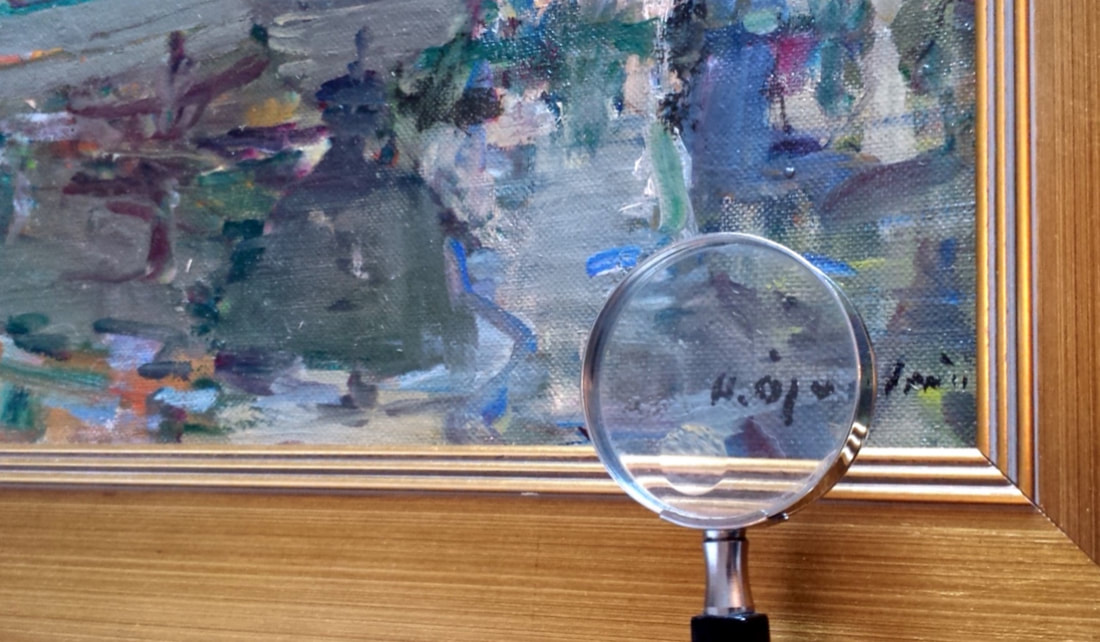|
Authentication of high-end artwork is a complex process and since it does come up from time to time in my appraisal duties, it is worth exploring here. What many people are not aware is that most prominent painters (think Picasso, Rembrandt, and others) have a recognized expert or committee of experts upon which auction houses and collectors typically rely. While an appraiser can value a work on the assumption that the piece is genuine, for an auction house to be willing to sell a work by a prominent artist, they will likely insist on first having the work validated at the consignor's expense. Sometimes this can be avoided if the painting appears in a recognized catalog of the artist's work (called a catalog raisonné). Otherwise, the auction house will send high-resolution images of the work to the recognized expert (s) and abide by their verdict.
A downside to this, of course, is that if the work is indeed genuine but the expert says otherwise, the work will be considered by the art market to not be authentic. And if that is the case, the work will be largely unsellable as a genuine work by the artist. This has led to some serious legal dustups in past years... enough so that the committees for some artists such as Warhol and Rothko have actually disbanded due to the cost and threat of litigation. In one instance, an expert who was preparing a catalog raisonné for a prominent painter abandoned the project after actually receiving death threats from owners concerned their works would be deemed fake. So, if you have a work by a major artist and you are considering the idea of bringing it to market, be aware that the process may be complex and also involve having to invest some money up front. |
AuthorBryan H. Roberts is a professional appraiser in Sarasota, FL. He is a member of the Florida State Guardianship Association and currently serves on the board of the local FSGA chapter. He is a past president of the Sarasota County Aging Network, a non-profit that provides grants to other non-profits benefiting seniors in need and is also a board member of PEL, an area non-profit whose resale store profits support programs and scholarships for at-risk and disadvantaged youth. He is certified in the latest Uniform Standards of Appraisal Practice (USPAP) Equivalent Archives
May 2024
Categories |


 RSS Feed
RSS Feed